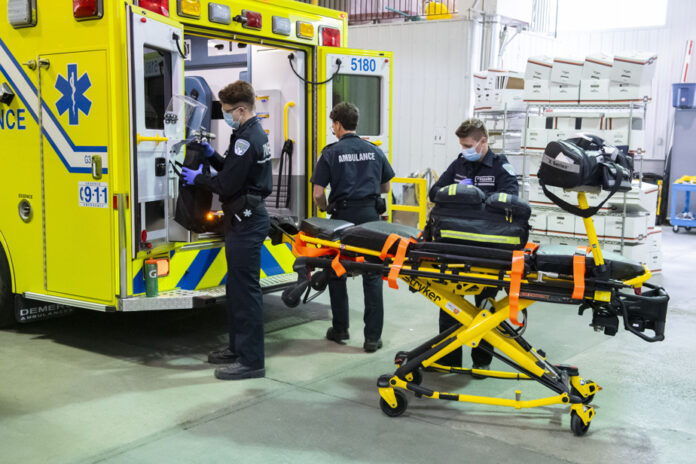“There are eight such cooperatives in our country, seven of which are members of the Federation of Paramedics Cooperatives of Quebec. They are mainly found in highly urbanized areas such as Sherbrooke and the Capitale-Nationale. This represents a total of 200,000 transportations and coverage for 3 million Quebecers, “said J. Benoit Caron, general manager of the federation.
Paramedic co-ops began to emerge during the 1990s. At a time when we were far from the current full employment. More and more private companies wanted to shed their workforce. “People wanted to make sure they kept their jobs. They got together, they got together. There was really a desire for involvement and accountability,” says J. Benoit Caron.
This desire has not yet dried up, because becoming a member of a coop requires involvement, whether at general meetings or on committees. An obligation that does not seem to put off these professionals, since these organizations have no difficulty in recruiting. “There are several beneficial effects, because as an owner and user of the equipment, there is a sensitivity to investing in innovation. There is a desire to develop the profession and this shows in the long term since employees are loyal to their organization,” said Mr. Caron.
The Estrie Ambulance Workers Cooperative (CTAE) will soon have 227 members. To join, everyone must invest $10,000 through payroll deduction, which they only get back when they leave the organization. “Employees don’t lose out, because as a member owner, there are rebate payments, but you have to know that someone who gets involved doesn’t have money as their end goal, but rather that of contribute,” explains Marie-Claude Boulanger, Managing Director.
What makes the adventure appealing is the feeling of being part of a big family, knowing that the organization’s money is being reinvested to improve working conditions.
This is how the CTAE has invested in the implementation of advanced care in Estrie. The region has even become the first outside Montreal to offer this expertise. A training policy has also helped several paramedics obtain a major at university, in order to provide advanced care and perform additional acts. “Sometimes some ambulances are now real little emergency rooms. Our priority is to do better for the population and we do not hesitate to embark on the unknown, as during the pandemic; we agreed to be at the forefront of screening and vaccination centers, ”explains Keven Archambault, division manager, communications, health and well-being, at the cooperative.
Of course, it is not always easy to be a manager, employee, member or administrator at the same time, because the decisions we make have an impact on a daily basis. When hiring, managers make sure to choose employees with values that correspond to those of the coop. Despite this, management challenges remain complex. “The co-op is them and it’s us. We are on the ground 24 hours a day, 7 days a week. We cannot act and speak like a sole proprietor. There is a duty to consult and the members are there. They participate through different committees or the Board of Directors,” concludes Marie-Claude Boulanger.















